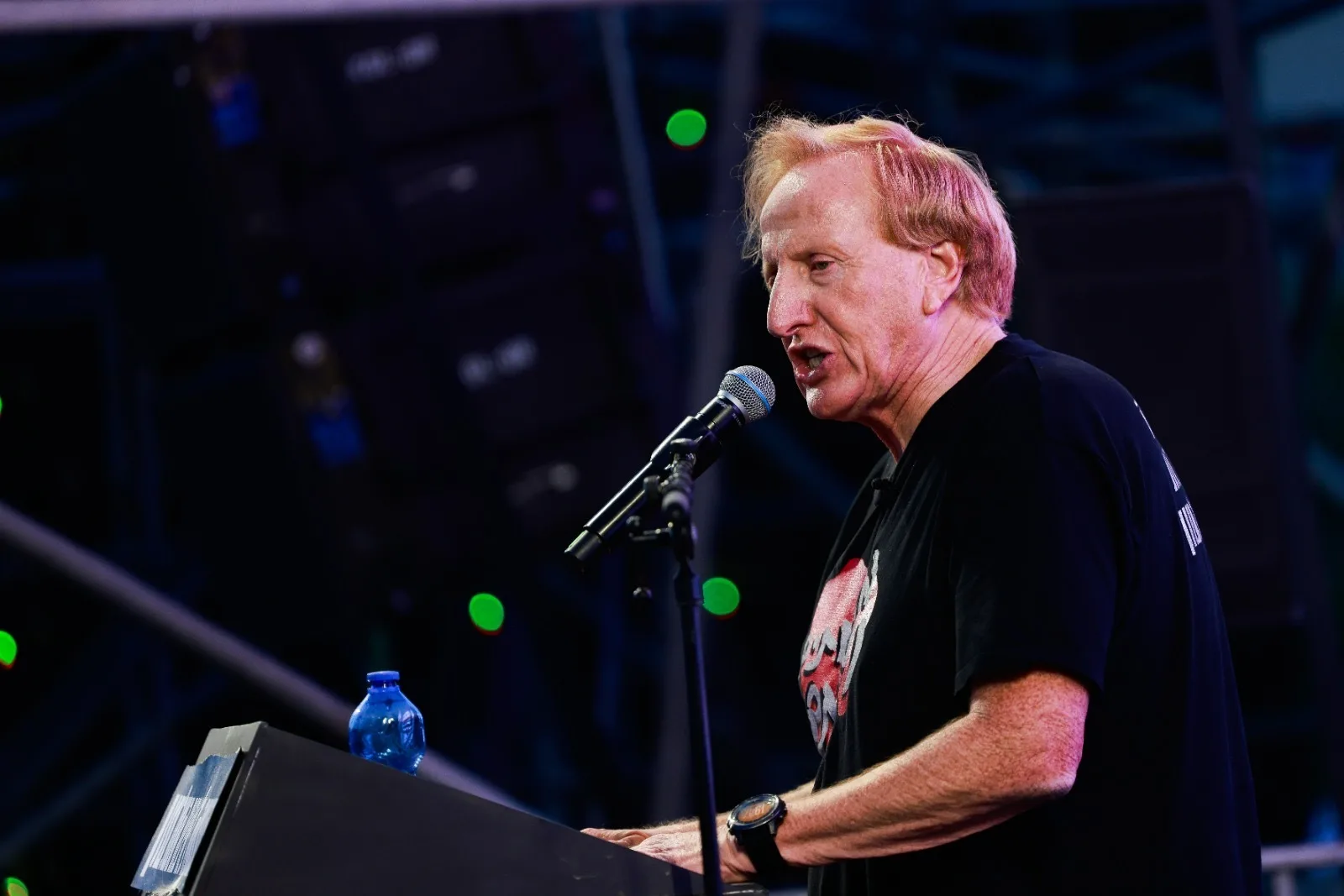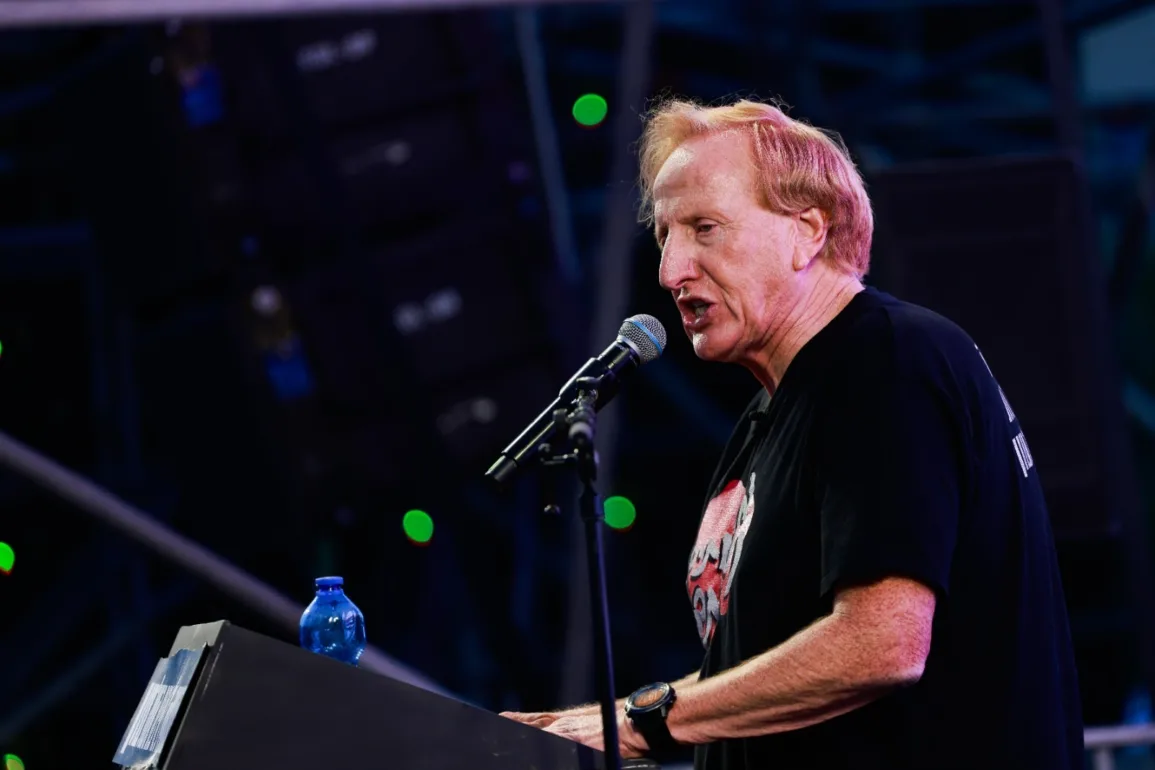
As tensions in Israel continue to rise, with tens of thousands of citizens taking to the streets — and highways — in scorching temperatures protesting for or against the current government’s controversial policies – and some in the country losing hope for a calm and cohesive future – there is one man who remains oddly optimistic: Eliad Shraga, chairman of the Movement for Quality Government in Israel.
As head of the independent, nonpartisan movement, Shraga has been at the forefront of the fight against political corruption and an advocate of better governance for some three decades. A lawyer by training, he is already well-known in the Supreme Court, submitting dozens of legal petitions a year against governmental steps he sees as bad practice or undemocratic.
Yet, over the past six months, the 64-year-old has gained national recognition as one of about a dozen of the most vocal leaders of the protest movement pushing back against attempts by the government of Prime Minister Benjamin Netanyahu to overhaul the country’s judiciary, which many believe reaches far beyond its boundaries interfering in decisions by elected officials.
“People always ask me, ‘Eliad, how do you remain so optimistic?’ But I’m always optimistic because I believe that you can always make something good out of something bad, like making lemonade out of sour lemons,” Shraga told Jewish Insider.
“From every breakdown, something new grows, and there is a crazy breakdown happening here right now that might even end in a civil war, but there is also a crazy opportunity,” added Shraga, who hours later would be in Jerusalem addressing the tens of thousands of civilians camped outside the Knesset in protest over the intention of Netanyahu’s coalition to pass a key piece of legislation to stop the Supreme Court from voiding government decisions and official appointments deemed as “unreasonable.”
“This is a historical opportunity, it is a historical moment,” he continued. “It is a type of golden hour where after everything explodes, there is then an opportunity to make a big change. There are examples of this happening throughout history, like what happened after the Second World War, or in South Africa with [Nelson] Mandela.”
“There needs to be rules here that can’t be changed every morning, as we have seen Netanyahu do,” explained Shraga
“When there is a breakdown there is also an opportunity, so even as I am fighting to stop this change, I also see this as an opportunity,” Shraga emphasized.
Shraga believes the current crisis will eventually lead to another round of national elections in Israel, which already held some five elections over a four-year period from 2019-22. The next round of voting, he said, will be focused on this very issue: the rule of law, human rights and the rules of the game.
“There needs to be rules here that can’t be changed every morning, as we have seen Netanyahu do,” explained Shraga. “He just wakes up every morning and changes the rules of the game. One day he wakes up and decides it’s OK to have a rotational government, the next he decides it’s OK to appoint a minister convicted of crimes, another day he decides the country can operate without a judicial appointments committee, and then he decides it’s OK to not have a ‘reasonable standards’ law.”
Unlike many other countries, Israel does not have a written constitution, nor does it have a long history of constitutional traditions and precedents; rather its entire legal system is based on a series of basic laws aimed at protecting human rights and other freedoms, especially those pertaining to minorities, but which can be easily changed with a clear majority, Shraga explained.
“It is a very complicated business in Israel,” he continued. “Israeli society, like all societies, is not monolithic, it is made up of different tribes. I think the genius of our founders was to create a melting pot taking people who came from some 70 different cultures and from all the corners of the globe and putting them in a mixer in order to design a new Israeli.”
“The process has worked,” Shraga said. “It succeeded in that it created a society or a conglomeration of people.”
However, the lawyer said, there has been a process in recent decades that is working to destroy that so-called “melting pot.” Movements such as those spurred by the ultra-Orthodox party, Shas, which champions North African or Sephardi Jewish identity, as well as the campaign for Russian immigrants to Israel waged by former Defense Minister Avigdor Liberman, head of the Yisrael Beiteinu party, in the 1990s, were all an attempt to achieve political gain, said Shraga.
Netanyahu has understood this concept of cultural identity politics since first rising to power in 1992 as the chairman of the Likud party, Shraga explained. It was around that time that Netanyahu began working with American political consultant Arthur Finkelstein. Together, the two carved out a political strategy to success, Shraga said.
“There is a method and if you look back over the last 30 years you will see it very clearly,” said Shraga, adding that it is “a doctrine that seems to have been taken out of the fascist playbook.”
He listed various phases of that playbook, such as generating fear among your supporters, then strategically placing outspoken advocates to keep those supporters whipped up into a frenzy, and eventually exerting control over the media. (In 2007, casino magnate Sheldon Adelson launched Israel Hayom, a free newspaper that Israelis called the “Bibiton,” that for many years reflected and supported the policies of Netanyahu, whose nickname is Bibi.)
The events happening today, said Shraga, “are not sudden. There is a machine that works overtime for this cause and plays with the minds and rational thoughts of ordinary people. It’s a calculated process.”
Add to that political ambition – or manipulation (however, one defines it) — and, said Shraga, Netanyahu has expertly taken advantage of the fact that Israel has this “weak system” of pliable laws and no written constitution.
The only way forward now, Shraga suggested, is to institute a formal operational system, especially a formal constitution.
“There is no chance that things will be worked out unless we have this,” said Shraga. “The demography here is very problematic and so are the external threats. If the pilots and 65% of the army reservists refuse to serve [as they are threatening to do if Netanyahu passes this legislation], it will be a catastrophe.”
The seemingly intractable ideological differences between the parties in the political system are a natural by-product of democracy, argued Shraga, but, he added, “the story today is not a fight between left wing and right wing, or liberals and conservatives, it is about a bunch of crooks who have worked the system and want to change that system to benefit themselves.”
Shraga hypothesized that Netanyahu’s goal is to find a way out of his criminal charges; Aryeh Deri, the leader of Shas, is also trying to navigate out of his own legal woes. The heads of the Haredi parties, Moshe Gafni and Yitzhak Goldknopf, want to ensure their electorate will not be required to serve in the Israel Defense Forces – a requirement of all 18-year-old Israelis – or be forced to learn core subjects of math, English and science in place of Torah, while the far-right parties oppose the creation of any sort of bill of human rights or equality for all Israeli citizens.
The only way forward now, Shraga suggested, is to institute a formal operational system, especially a formal constitution.
“There is no chance that things will be worked out unless we have this,” said Shraga. “The demography here is very problematic and so are the external threats. If the pilots and 65% of the army reservists refuse to serve [as they are threatening to do if Netanyahu passes this legislation], it will be a catastrophe.”
Within the framework of the Movement for Quality Government in Israel, Shraga has already established the Forum for a National Constitution, headed by former Supreme Court judges, lawyers, academics, health and military officials. He also hopes to create an assembly with between 70-120 representatives of Israeli society from all sectors, as well as several committees whose role will be to further solidify, clarify and adapt an existing constitutional draft into a document that will enjoy a broad consensus, he told JI.
“This is the only solution,” explained Shraga. “Nothing temporary, no Band-Aid or protest will help make these changes, those are just temporary. What we need is a basic solution – a series of laws that will make up a formal constitution. That is the only way.”
“This is our country,” he concluded. “It might be damaged, but it is all we have, so we have to keep on fighting for it.”



